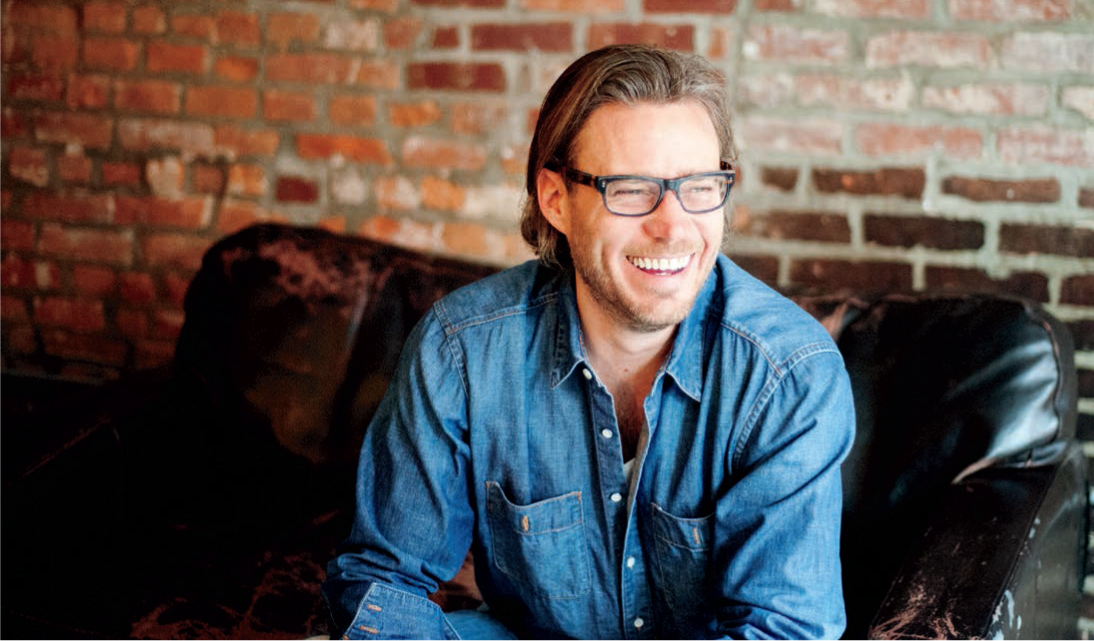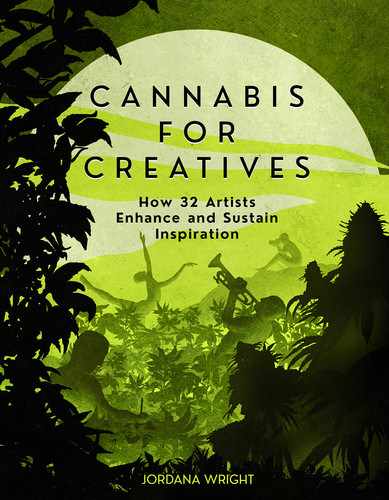ARTIST PROFILE Juerg Federer
chef, writer, and creativity consultant

Juerg Federer, who goes by Fed, makes creativity his passion and his business. After a thriving career in the culinary world as a gifted chef—he’s the mastermind behind Sex on the Table, a series of 500 sold-out performance dining experiences in New York—he has shifted toward a pursuit of leading others to find their creative stride. Through coaching and mentorship, Fed helps deeply creative people navigate environments that don’t always value their outside-the-box approaches.
For Fed, the definition of creation and creativity isn’t solely artistic. Life is composed of many moments of creation. He views each decision in our daily existence as an opportunity to create, from choosing to make eye contact with a stranger, creating a connection, to the decision to stay lost in one’s own thoughts and create dissociation from the world.
From his home, just outside Zurich, Switzerland, Fed describes some of the challenges many extremely creative individuals face in their lives. Sometimes creativity can be painful, he explains, “Because creativity is an autonomous journey. It’s radically individual, whereas the common institutions that regulate our society—like education, talent management in a corporate world, and military—all these social structures are taking all these individuals and forming them into one body. What’s painful is when your creativity is so strong that you don’t really connect to these systems.”
This conflict between inner creativity and the expectation to conform is something Fed has experienced many times in his life, but he’s always found a path that aligns with his goals and priorities, like taking the established dining experience and reimagining it as more of an interactive culinary performance.

In Fed’s personal creative pursuits, he often prefers what he calls “pointless creativity,” or creative activities without any particular goal. The simple act of creation helps him feel alive, so he’s revisiting his relationship with the cello, he paints horribly (his word) for fun, he cooks at home, and he’s writing a novel. Some of these pursuits may end in some sort of identifiable product, while others will simply release some of his creative energy, enriching his existence. In each of these pursuits, the result is less important to him than the experience of getting there.
With that focus on the creative journey, Fed began incorporating cannabis into his pursuits, both personal and professional. Like many cannabis enthusiasts, he had always maintained a strict sense of division between work and play. Cannabis was solely a recreational activity. Then, through food, he came to realize that the inspiration he encountered while high could be valuable for examining flavors, textures, and experiences while cooking and eating.
“I would say food is a very marijuana-friendly business,” he tells me. “There’s such a rhythm to cooking. It’s crazy because first of all, the senses open up when you’re smoking pot: your sense of smell, your sense of taste, your sense of texture. These feelings are actually increased, and that really helps in creating a recipe.” In his experimentation, Fed found a new drive to go beyond the previously established flavor profiles to create something new and, perhaps, less obvious.
Even the act of serving food at a restaurant is something Fed enjoys with the addition of cannabis. “It has so much to do with a rhythm, a pace that will kind of give you eight arms and legs as you have this 360-degree awareness of what’s happening behind you on the stove, what you hear, what you see, what you smell, what you taste.…”

Most often, a spliff (his preferred method of consumption) will have the traditionally sought-after result: breaking down mental boundaries and allowing new connections between ideas that have never comingled in his mind before. Other times, smoking will result in the discomfort and paranoia that even the most seasoned cannabis enthusiasts can occasionally experience. With that duality of experience—the elevated and the paranoid—he believes novel creation is more likely to occur.
He explains that, even in its unpleasantness, paranoia can be useful because “if there is no discomfort, we’re not going to create anything new because everything is perfect the way it is. You increase your range, your window of response, and therefore you can access the feelings that other people are shying away from.”
Though Fed appreciates a wide range of highs, cannabis and creativity aren’t necessarily an if–then situation. “I would love for pot to be the switch where you turn on creativity,” he says, smiling, “but you know sometimes it’s the switch where you turn on couch potato and nothing really happens.”
Much like creativity is a personal act for Fed, smoking is usually a solo experience as well. An increase in the flow of ideas both requires and produces a more vulnerable state, so he prefers to work through cannabis-fueled concepts on his own before introducing them to others.
“The creative thought in itself feels like a universe to you, and then you’re trying to explain it, and words just don’t do justice, but I feel like holding space for a concept—that’s actually where creativity starts. The biggest enemy of creativity is fear, and when I’m sitting in a room with you and I just birthed this universe, I might be afraid of you destroying it for me, so maybe I’m not willing to show it. I don’t need the other person’s judgement before my seedling has grown some roots.”
Creativity, he explains, is a nebulous concept, evolving throughout our lives. But even in its variability, there are a few key elements that he finds are universally required for being creative: wisdom born of experience, self-motivation to create something new, the courage to fail, individuality outside of institutionalized thinking, and an ideal environment, curated for nourishing the creator while they engage in the vulnerable state of creation.

Speaking with Fed about creativity and cannabis is like having access to a contemporary philosopher. His personal reflections on the creative journey, in all its stages, are part of why he is such an effective resource for his clients. “A lot of people who come through my practice are aware that there was a time in their life when they were creative,” but the institutions in society, he explains, can break down the natural creative impulse. The goal is to find your way back to the creativity you once knew.
Regardless of cannabis use, environment, or variety of creative pursuit, one thing remains universally true for Fed and all his clients: “The only thing that you never know is when is mother creativity going to access me? You’ve got to get ready for her.”
